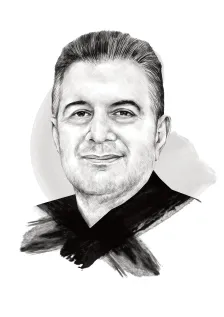Seventy years have passed between two coronations. They began as they ended with the United Kingdom dealing with its economic crises following wars in which it participated in, or which were imposed on it.
Seven decades of Queen Elizabeth II's reign – the longest in the kingdom's history – saw Britain experience boom and bust, oil shocks, trade wars, the dawn of privatisation and the private sector during the prosperous era of Margaret Thatcher, currency turmoil, financial crises, and joining the European Union and then withdrawing from it (Brexit).
However, the UK's position as a solid global power with its decision-making and influence has not been shaken. The kingdom maintained its stability in a world that has seen massive changes in maps, politics, and economy, culminating in artificial intelligence today.
The coronation of King Charles III came at a time when the UK — like other European countries — is suffering from the fallout of the Ukraine war, and, before it, the Covid-19 pandemic.
The recovery path has been long and slow, resulting in high prices and high inflation rates of more than 10 percent — the highest in four decades. Unusual costs of living have pushed Britons into poverty, suffering, sustained labour strikes and, in particular, a low level of health and education services.
After Britain's worst financial crisis in 2008, when economic growth fell to a 250-year low, the positive impact of Brexit is not yet clear, as the UK economy — Europe's second largest after Germany's — is struggling to keep up with France and Italy.




